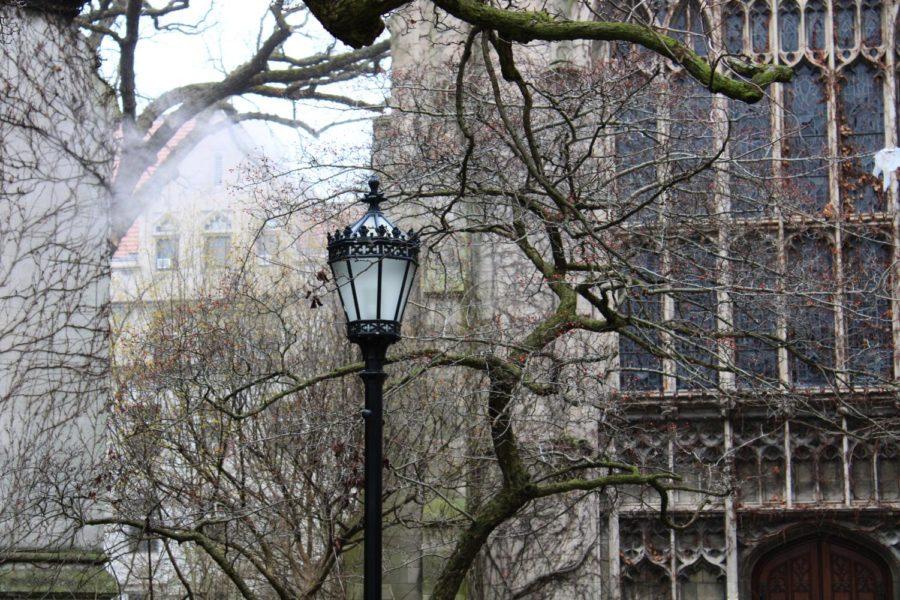It has been over a month since students left in-person learning at the University. As classes have transitioned to Zoom, several of the community’s religious and spiritual organizations have also found ways to adapt to the constraints of social distancing, managing to come together despite being spread out throughout the world.
Some students have turned to online versions of the Bible, Torah, Koran, and other religious texts, articles, and blogs. Hannah Bloomberg from UChicago Hillel said, “The rabbis writing all this literature about what it means to have a tradition core to be your being and feel like it’s changing…and I’ve really found a lot of meaning studying those texts.”
Zoom has been used to hold virtual meetings and masses. The University’s spiritual life website has a list of several interfaith activities and events each week, similar to what they would offer on campus. Spiritual Life’s virtual living room is always open and structured events such as “20 Minutes Still,” coffee and chai chats, and gentle yoga are all available each week for people to participate in from home. For Passover, UChicago Hillel used Zoom to host a Seder meal, or “Zeder,” as they congregated through cameras instead of in person.
The switch to virtual meetings has also resulted in new ways to connect. “Our undergraduate community just started an initiative where anyone can sign up to receive a weekly prayer partner—someone to connect with by phone and share whatever challenges they are facing in present circumstances,” Father Andrew Liaugminas of Calvert House said.
More formally, several organizations are keeping Bible studies and masses going through both Zoom and online streaming. UChicago Cru is still leading Bible study three times a week via Zoom. Calvert House, the Catholic center on campus, as well as Augustana Lutheran Church and Brent House, are streaming masses online and encouraging students to email their respective preachers.
However, while organizations have adapted well to the circumstances, some practices have been canceled or cannot be performed at home. Without in-person services, sacraments like Holy Communion cannot be administered by the church, but churches have provided resources for their people to take it in their homes. “Communion is a really essential part of the Episcopal Church’s worship,” Reverend Stacy Alan of Brent House told The Maroon, “This ritual that is symbolic of us being together across time and space doesn’t make sense yet…I think this is the time where going without something that is really important is a good discipline.”
One particular loss that was heavy on the minds of people from all faiths was saying goodbye to graduating students in their communities. “We had fourth-years and graduating grad students where, once we scattered, weren’t ever going to be this community again. It was done,” Alan said. Fourth-year Christians missed out on Easter vigils, members of the Jewish community didn’t gather for large Passovers, and Muslim students will not be able to experience Ramadan on campus one last time.
“What it means to be a community and what it means to gather has changed,” Bloomberg said.
Despite the physical isolation, spiritual communities have reported to have found a deep strength in this new social “normal.” Dahlia Walters, a third-year bible-study leader at UChicago Cru, said, “Community can no longer be passively fostered—the intention has to be there for community to be maintained.”
“We are doing everything we can to connect with our community and to affirm that our physical distance need not mean spiritual distance,” Liaugminas said. Due to isolation, congregations have been more motivated to step up their game and reach out to members through prayer and practice.
“The gravity of this pandemic has provided plenty of time to reassess our priorities and beliefs. Most importantly, I think that this time has really established a sense of unity towards helping others and deepened the hope rooted in our faith,” third-year Cru member Jonathan Kim said.
“We might find it especially challenging to be faithful when things are so unpredictable, and the times are so trying. Yet, it is precisely in circumstances such as those we face today that we witness the real power of faith, the resilience of hope, and the overcoming power of love,” Liaugminas said.









